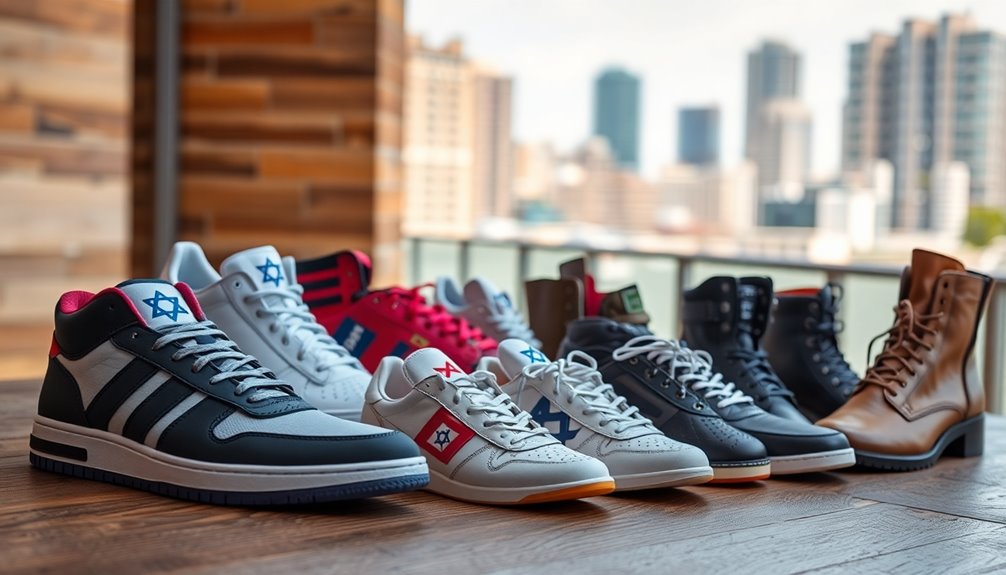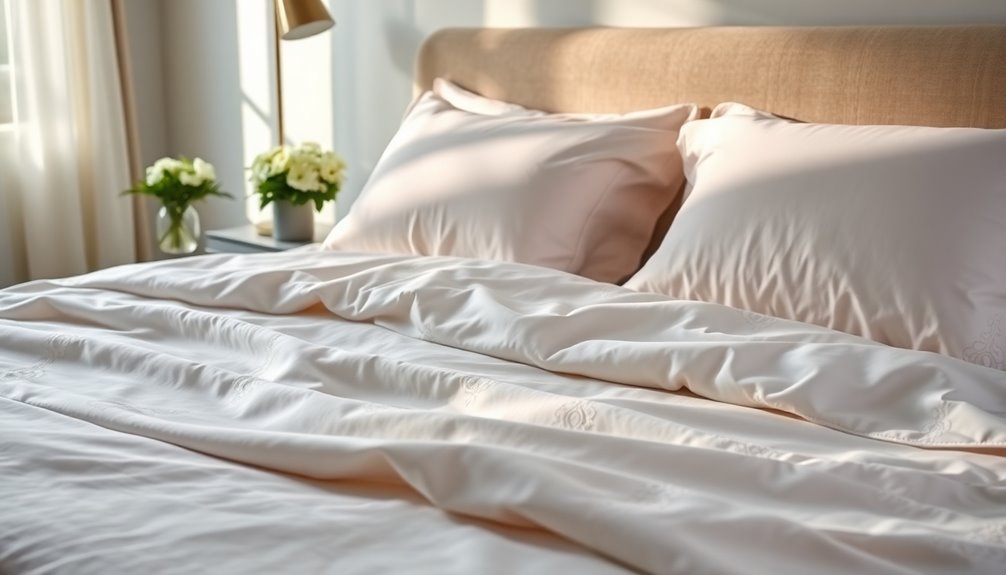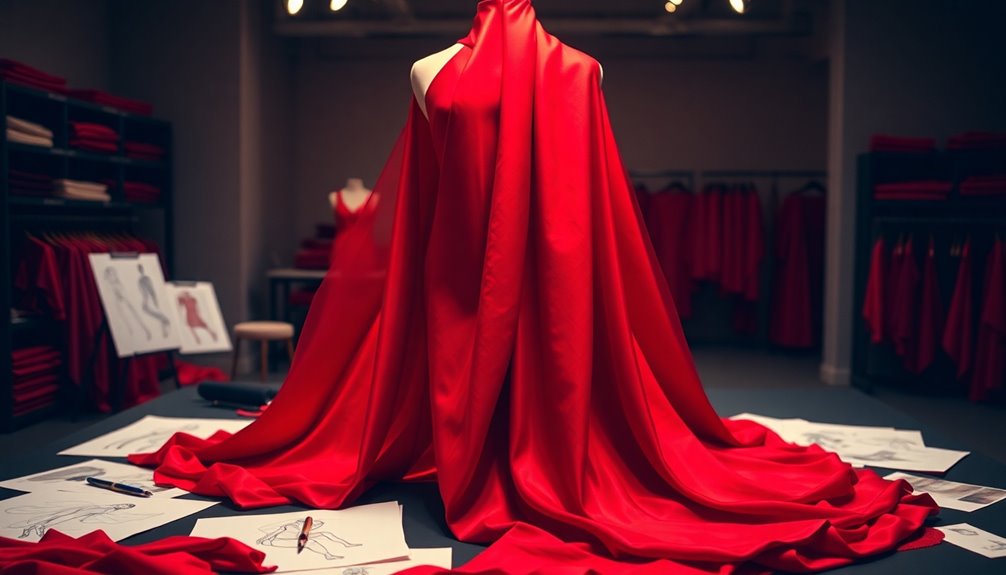If you're curious about shoe brands that support Israel, several notable names come to mind. Puma sponsors the Israel Football Association and its athletes, showcasing its commitment. While Adidas previously supported the association, it withdrew sponsorship in 2018. Nike's ties are more business-oriented, deciding to cease supplying Israeli stores. Beyond shoes, companies like Dell and Deutsche Telekom maintain investments in Israel. Brands like Tieks and Chanel also contribute to humanitarian efforts related to the conflict. These choices reflect a blend of fashion and purpose, highlighting how your brand choices can carry deeper meaning. There's more to explore about these connections.
Key Takeaways
- Puma sponsors the Israel Football Association and faced backlash for its ties to teams in illegal settlements.
- Adidas previously supported the IFA but ended its sponsorship in 2018 due to public pressure.
- Nike ceased supplying products to Israeli stores, making a business decision rather than an outright boycott.
- Procter & Gamble's donations to Israeli causes link its products to support for Israel, reflecting corporate ties.
- Tieks raised over $80,000 for Israeli hospitals, showcasing charitable contributions by shoe brands supporting Israel.
Direct Support From Brands
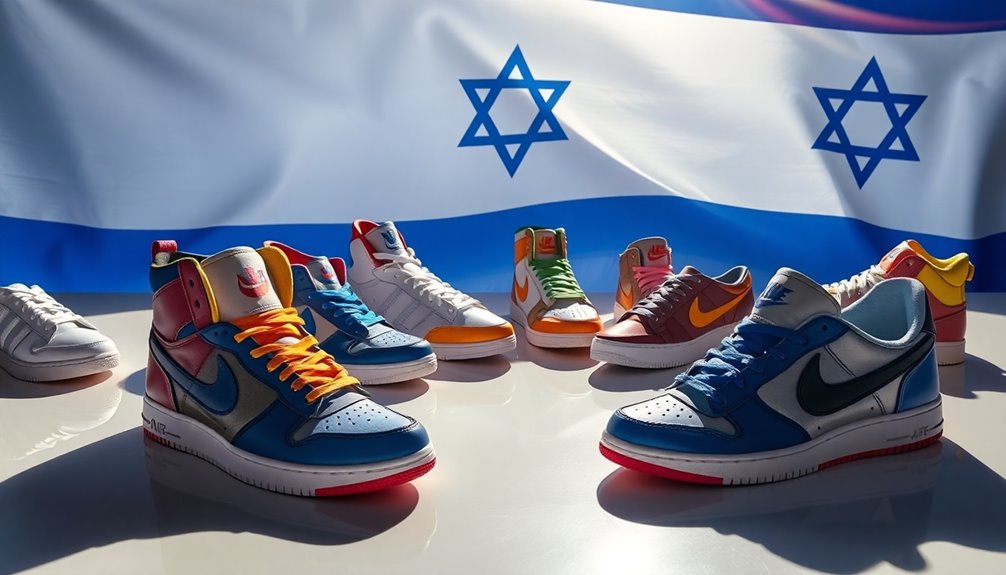
In recent years, various shoe brands have come under scrutiny for their direct support of Israel, particularly through sponsorships and partnerships. One prominent example is Puma, which sponsors the Israel Football Association (IFA), including teams based in illegal settlements on occupied Palestinian land. This sponsorship not only lends international legitimacy to the IFA's actions but also supports Israeli sports infrastructure in these disputed areas.
While Adidas ended its sponsorship of the IFA in 2018, it previously played a role in this direct support. Nike, on the other hand, shifted its sales strategy and stopped supplying products to Israeli stores, but this move wasn't a boycott; it was purely a business decision. Israeli fashion has historically been intertwined with cultural and political narratives, influencing how brands are perceived in the global market.
Arsenal FC's partnerships with Israeli companies further illustrate the entanglement of sports and politics in this context.
As you consider your choices in footwear, it's essential to recognize how these brands align themselves with complex geopolitical issues. Puma's support for Israeli athletes and teams ties back to broader implications, including human rights violations and the ongoing struggle for Palestinian rights, which many consumers are increasingly aware of and concerned about.
Parent Company Connections
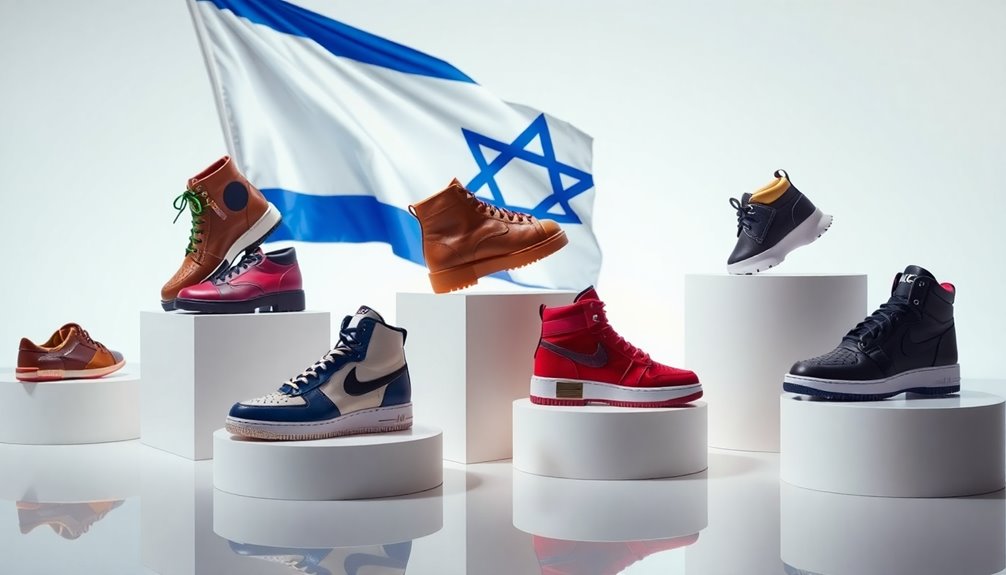
Many consumers may not realize how parent companies influence their favorite shoe brands, especially when it comes to geopolitical support.
Take LVMH, for instance; it owns Kenzo, a brand that supports Israel. LVMH's CEO, Bernard Arnault, has connections to Israeli interests, and the company often participates in global events featuring Israeli fashion. This means that when you buy from LVMH brands, you're indirectly contributing to Israeli fashion and technology.
PepsiCo is another example. It owns brands like Sabra Hummus, Quaker Oats, and Ruffles, all of which support Israel. PepsiCo invests in Israeli companies and provides financial aid to military and civilian initiatives. Through these connections, your choices in snacks can also support Israeli athletes and teams. Additionally, activists initiated boycotts against brands like Adidas for their perceived support of Israel, which reflects the growing awareness among consumers.
Finally, Procter & Gamble's ownership of Downy links it to Israeli support through philanthropy. They donate to Israeli causes and aid soldiers, while subsidiaries like Domino's help feed those in need in Israel.
Unilever operates in Israel and supports local businesses through investments. All these connections highlight how your favorite shoe brands may be part of a larger network that supports Israel.
Technology Partnerships in Israel
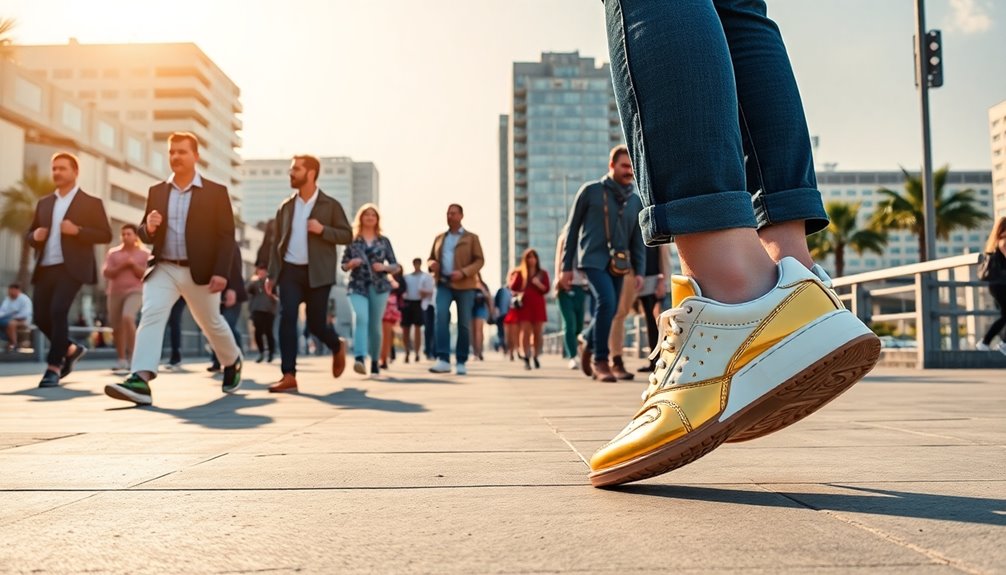
Shoe brands are increasingly leveraging technology partnerships in Israel to enhance product innovation and sustainability. Collaborating with institutions like Tel Aviv University, these brands are developing smartwear that incorporates wearable technology to gather and analyze athlete performance data.
Partnerships with Hebrew University focus on using AI and big data to tailor marketing strategies, ensuring consumers receive personalized promotions. The Technion is aiding in the creation of eco-friendly materials, while engineering students at the University of Haifa work with Nike on a smart shoe project that integrates sensor technology. This collaboration with leading universities emphasizes the importance of ongoing research and development in the footwear industry.
This focus on real-time data collection boosts performance, comfort, and durability. Innovative startups like Balena are developing compostable and biodegradable shoes, utilizing 3D printing technology to make products that can be returned to the earth.
These advancements not only contribute to corporate sustainability but also enhance consumer satisfaction. Looking ahead, shoe brands plan to expand their collaborations with universities globally, tapping into advanced technologies like AI and quantum computing.
Charitable Contributions and Donations
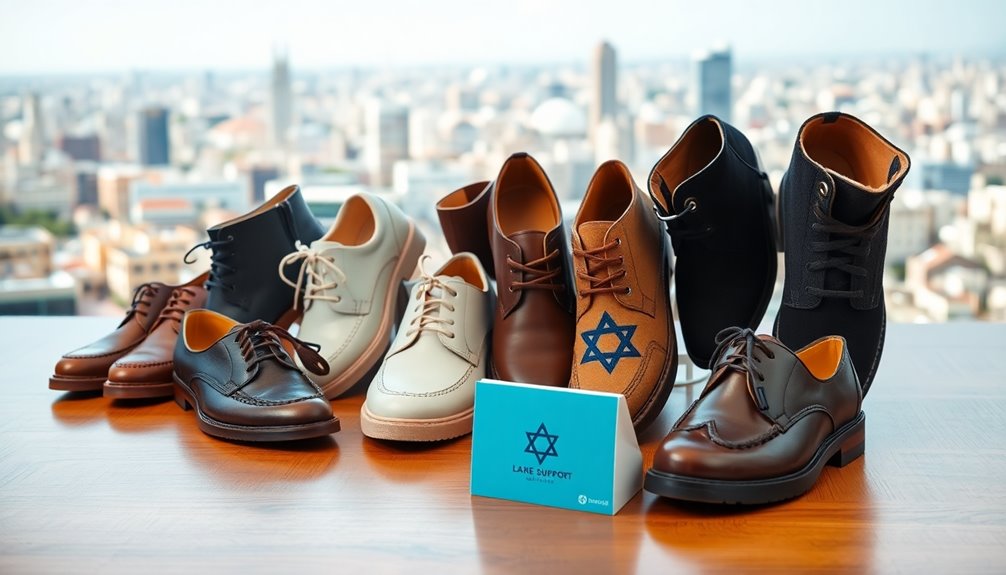
As brands embrace technology partnerships in Israel to drive innovation, they're also stepping up their charitable efforts in response to recent crises.
For example, Tieks launched a week-long virtual fundraiser called "Tieks for Israel" to support overwhelmed hospitals following Hamas attacks. This campaign featured a raffle of exclusive ballet flats, with 100% of the proceeds going directly to Israeli hospitals. Remarkably, within the first day, the fundraiser raised over $80,000, showcasing the power of community support. This campaign is part of a larger initiative that highlights the company's commitment to [supporting Israel during crises].
Other brands have made significant contributions as well. Chanel donated $4 million to humanitarian organizations assisting those affected by the conflict.
The PVH Foundation supported the International Committee of the Red Cross and matched employee donations for regional relief initiatives. Additionally, Authentic Brands Group implemented a one-for-one matching donation program for organizations like Magen David Adom.
Adidas has pledged over $150 million from sales of Yeezy shoes to pro-Israel groups following its severance from Kanye West.
These efforts illustrate how shoe brands aren't only committed to fashion but also to making a meaningful impact during challenging times.
Marketing and Public Statements
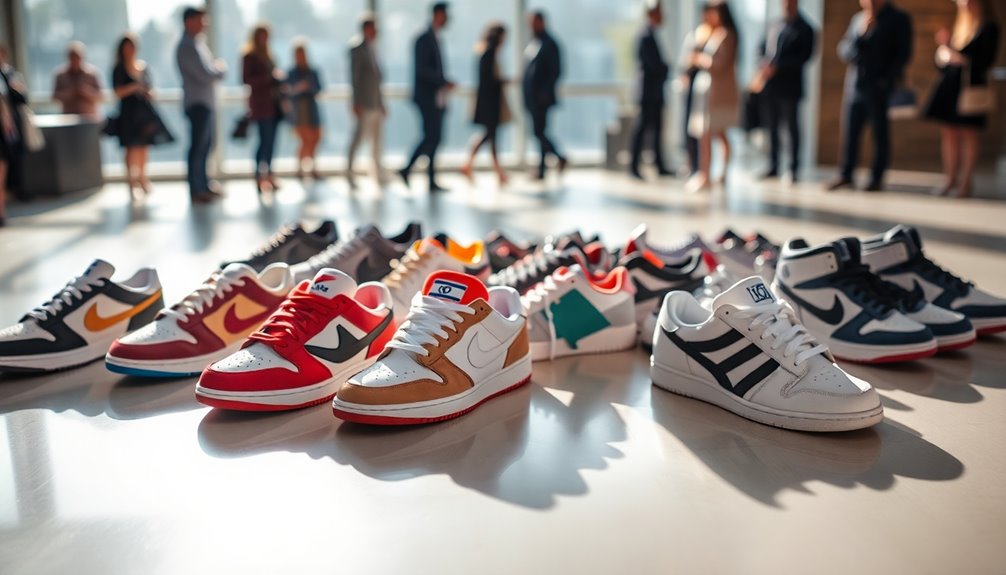
Navigating the complex landscape of public perception, brands have faced challenges in their marketing strategies related to the Israeli-Palestinian conflict. Misinformation often complicates matters, as seen with Nike. Social media posts incorrectly suggested that Nike launched a pro-Israel sneaker line. In reality, those shoes were custom-designed by PNT by Ray and weren't an official Nike product. Nike clarified that these sneakers aren't available for purchase and were merely a gift for the executive director of StandWithUs in Israel. This misinformation led to calls for a boycott against Nike from some influencers. Nike confirmed that the sneakers are not part of its product line and emphasized the importance of accurate information in public discourse.
Puma experienced its own controversies when it sponsored the Israel Football Association, which includes teams in illegal Israeli settlements. Over 200 Palestinian football teams urged Puma to end this sponsorship. Eventually, Puma opted not to renew its support in December 2023, likely due to mounting pressure, protests, and athlete dropouts. The BDS movement criticized Puma for legitimizing Israel's actions, highlighting the brand's weak human rights record. Consequently, Puma faced significant public backlash, leading to protests and campaigns targeting its involvement with the IFA, ultimately resulting in reputational damage.
Indirect Economic Support
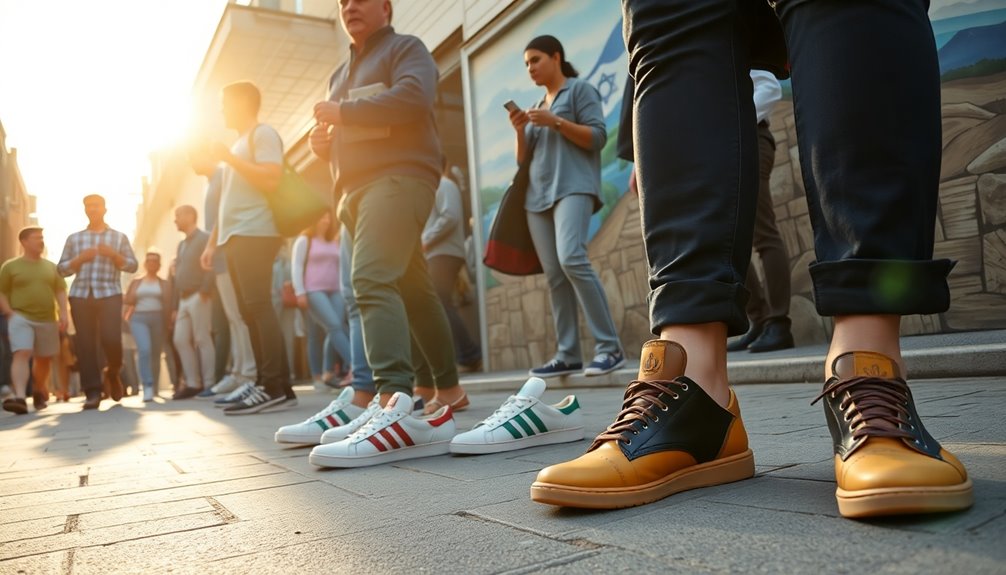
Many companies provide indirect economic support to Israel through financial investments, supply chain operations, product sourcing, and charitable donations. For example, Dell's founder is a member of the Friends of the IDF, while Deutsche Telekom invests in the Israeli software company Teridion. Lidl's and Kaufland's owners invest heavily in Israeli tech companies, showcasing a commitment to fostering economic ties.
In terms of operations, DHL Group and Siemens maintain significant business activities in Israel, contributing to the local economy. Tata provides IT services to the Israeli military and supplies vehicles, indicating deeper operational connections.
PUMA's sponsorship of Israeli athletes further highlights their involvement, while Domino's logistical support through food donations to Israeli soldiers shows a commitment beyond mere commerce. Additionally, Coca-Cola operates a factory in an illegal Israeli settlement, illustrating the complex relationships these brands have with the region.
When it comes to product sourcing, Trader Joe's sells products sourced from Israel, and Sabra Hummus represents a joint venture between PepsiCo and an Israeli company. Brands like Rapunzel Dates and SABON are directly linked to Israeli ownership. Lastly, charitable donations from companies like Disney and Eli Lilly reinforce the financial support that bolsters Israel's economy.
Your awareness of these connections can guide your purchasing decisions.
The Impact of Fashion Choices
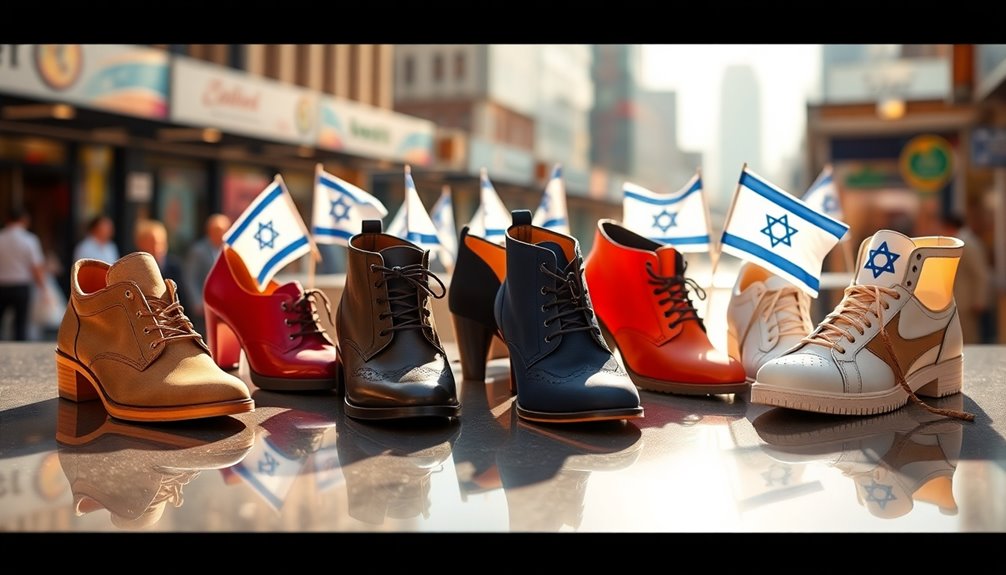
Fashion choices significantly influence how you express your identity and connect with various social groups. When you pick an outfit or a pair of shoes, you're often driven by a desire to belong, conforming to the expectations of particular communities or subcultures.
Whether it's a trendy sneaker or a classic boot, your fashion choices signal your affiliation and social status, showcasing your personality and values. Cultural aesthetics play a significant role in shaping these choices, as they often dictate what is considered fashionable within different communities.
Media plays a pivotal role in shaping your fashion preferences. From fashion magazines to social media influencers, the images you consume create an aspirational lifestyle you might want to emulate.
Celebrities often become style icons, impacting your decisions and motivating you to adopt specific trends.
Moreover, psychological factors also play a part. Clothing boosts self-esteem, making you feel attractive and confident.
However, insecurities may lead you to seek validation through your fashion choices, further influencing your purchases.
As you navigate the shopping experience, remember that retailers strategically design their stores and marketing campaigns to entice you.
The emotional connections you develop with fashion trends can drive your desire to buy, ultimately linking your fashion choices to broader social and cultural narratives.
Frequently Asked Questions
How Can I Identify Brands That Support Israel While Shopping?
To identify brands that support Israel while shopping, you can start by researching companies' public statements and actions.
Use online tools or product checkers that highlight Israeli affiliations. You can also check verified boycott lists and scan barcodes, particularly those starting with 729.
Don't hesitate to enter brand names in search engines to uncover their ties to Israel.
This way, you'll make informed choices based on your values.
Are There Any Alternative Shoe Brands That Oppose Israel's Actions?
If you're looking for alternative shoe brands that oppose Israel's actions, consider options like FC Palestina and PaliRoots.
While not primarily shoe brands, they support Palestinian causes and promote cultural awareness.
You might also explore ethical brands that prioritize human rights and sustainability.
Do These Brands Engage in Any Peace Initiatives or Dialogues?
Yes, many brands engage in peace initiatives and dialogues. For instance, Tory Burch and Authentic Brands Group openly condemn terrorism and promote peace, expressing solidarity with affected communities.
Galia Lahav and Pnina Tornai emphasize a hopeful future where everyone can unite in creativity.
Additionally, some brands, like PVH, support their employees impacted by conflict, demonstrating a commitment to community well-being and fostering a more peaceful environment through their initiatives.
What Impact Do Consumer Boycotts Have on These Brands?
Consumer boycotts can hit brands hard, leading to significant drops in sales and damaging their reputation.
If you choose to boycott a brand, you might notice its market value plummeting as consumer trust erodes. Many people switch to alternatives perceived as more ethical, affecting long-term loyalty.
Brands often scramble to recover by adjusting strategies or improving their practices, but the negative impact of boycotts can linger, influencing your future purchasing decisions.
How Can Consumers Advocate for Ethical Fashion Choices Regarding This Issue?
You can advocate for ethical fashion choices by researching brands and their practices.
Opt for companies that prioritize sustainability and fair labor.
Participate in community initiatives that promote pro-Palestine or ethical alternatives.
Use social media to share your findings and influence others.
Engage in events that raise awareness about ethical fashion, and support platforms that curate conscious brands.
Your choices can create a ripple effect, encouraging more people to consider their fashion impact.
Conclusion
In choosing fashion brands that support Israel, you're not just making a style statement—you're aligning your values with your purchases. By opting for companies that contribute directly or indirectly to Israel, you're participating in a larger conversation about ethical consumerism. Your fashion choices can have a meaningful impact, promoting causes you believe in. So next time you shop, consider how your footwear can reflect your principles and support the causes that matter to you.
